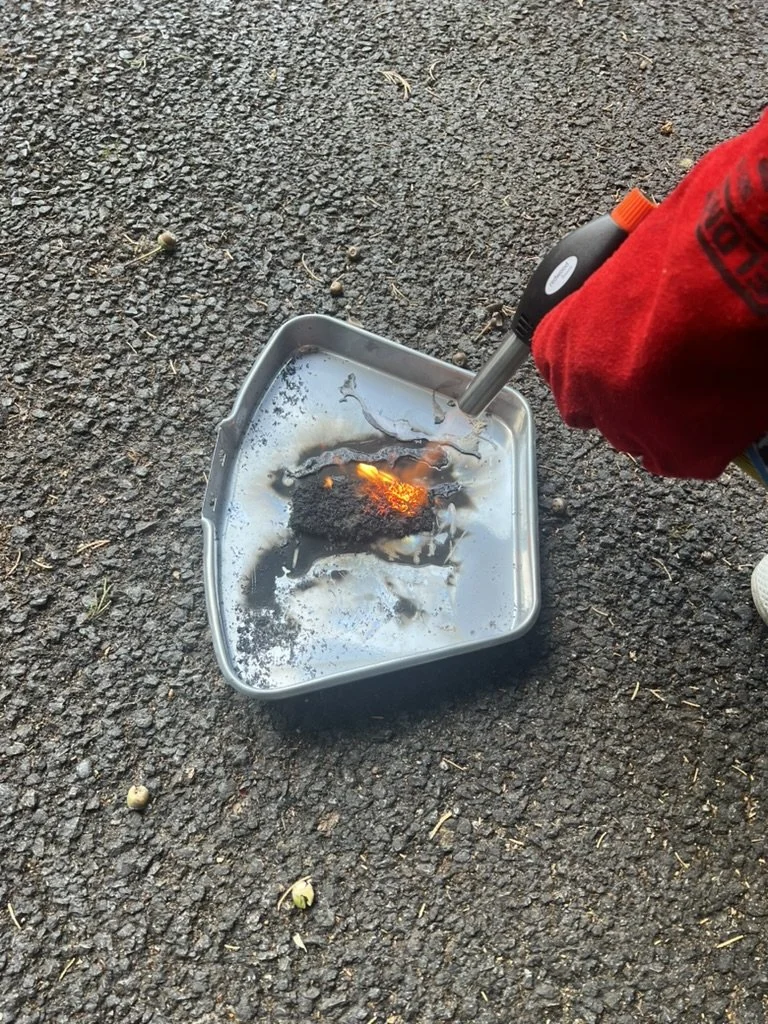BS 8674:2025, competence, and the right pathway through our Level 3 and Level 4 courses
As London-based fire safety consultants, we welcome BS 8674:2025 because it finally sets a clear, UK-wide benchmark for the competence of individual fire risk assessors. The standard came into effect on 31 August 2025 and is published as a code of practice by BSI’s CPB/1 committee. It defines what good looks like, and it does so in language that dutyholders, trainers and assessors can all use.
BS 8674 focuses on people rather than organisations. It describes the skills, knowledge, experience and behaviours that assessors must show at three levels: Foundation, Intermediate and Advanced. The message is simple. Work within your competence, know your limits and escalate when a job sits beyond your level. The standard is explicit that assessors should only undertake assessments appropriate to their ability and should seek supervision or specialist input where required.
Scope matters. BS 8674 addresses non-invasive fire risk assessments of existing general fire safety measures, typically in buildings built with conventional materials and systems such as masonry, brick, stone, timber, steel and reinforced concrete. It recognises that modern methods of construction may demand additional specialist knowledge. It also makes clear what it does not cover: the methodology for conducting assessments, FRAEWs of external wall systems, destructive inspections, product testing, and fire safety engineering beyond the standard’s Advanced level.
BS 8674 deliberately sits alongside the method documents you already use. For non-residential premises, follow PAS 79-1. For housing, follow BS 9792. For external wall appraisal in existing blocks of flats, follow PAS 9980. BS 8674 is about the person doing the work; these other documents are about how the work is done.
The standard is practical. Annex B sets out detailed competence expectations for each level and Annex C links those levels to typical building risk profiles. That helps a Responsible Person appoint the right assessor and gives assessors a development roadmap from Foundation through to Advanced. The ethical spine runs throughout, with a model code of conduct covering integrity, conflicts, diligence, communication and accountability.
How our courses align with BS 8674
Our programmes are built to map directly to the BS 8674 competence levels so you can evidence the right capability for the right buildings.
The ProQual Level 3 Award in Intermediate Fire Risk Assessment develops assessors who work in medium-risk premises. It comprises two mandatory units, “Principles of the Intermediate Fire Risk Assessment” and “Practice of the Intermediate Fire Risk Assessment,” with a total qualification time of 100 hours and 50 guided learning hours. It is regulated by Ofqual (RQF 610/4736/3). Candidates must be in a role or training setting that allows them to complete assessments in medium-risk buildings. Successful learners progress naturally to Level 4.
The ProQual Level 4 Award in Advanced Fire Risk Assessment is for assessors operating in high-risk buildings and is explicitly based on the skills, knowledge and behaviours set out in BS 8674. The award has two units, “Principles” and “Practice,” with 120 total qualification hours and 100 guided learning hours, and is regulated by Ofqual (RQF 610/4737/5). Entry is open to those who already hold the Level 3 Award or who can evidence at least three years of relevant experience conducting assessments in medium-risk premises. Assessment is portfolio-based and quality assured through internal and external verification.
This is how the alignment works in practice. BS 8674’s Intermediate competence deals with moderate-risk premises and conventional construction, which mirrors the Level 3 target context of “medium-risk buildings.” BS 8674’s Advanced competence expects assessors to handle higher complexity and risk profiles within the standard’s scope, which is exactly what the Level 4 “Practice” unit requires when it mandates use of appropriate codes and standards, structured pre-assessment planning, and evaluation of strengths and weaknesses of current arrangements in high-risk buildings.
What this means for you as a dutyholder or assessor
If you are appointing an assessor, BS 8674 gives you a common yardstick for competence and signposts when a specialist is needed. It reinforces a duty of care principle that no assessor should work beyond their level and that escalation to Advanced practitioners or to additional specialists is part of a safe system. It also clarifies that invasive investigations, design of fire strategies, and product testing sit outside the standard’s remit, keeping appointments focused on the correct scope of work.
If you are developing your career, the pathway is clear. Build Intermediate capability through our Level 3 Award, then step into Advanced competence through our Level 4 Award. Both qualifications are recognised on the RQF and require you to produce real evidence of practice against set learning outcomes and assessment criteria, so you leave with a portfolio that demonstrates competence rather than a certificate alone.
Why choose the Fire Safety College at London Fire Consultants
We teach from the perspective of working London fire engineers and investigators who deliver strategies and assessments daily across residential, commercial, heritage and mixed-use stock. Our curriculum is current to BS 8674 and ties method and competence together: PAS 79-1 and BS 9792 for how you assess, BS 8674 for who should assess and at what level. Learners get structured teaching, mentored practice, and rigorous internal quality assurance so that their portfolios stand up to scrutiny from clients, regulators and professional bodies.
Enrol today
If you are ready to build Intermediate competence for medium-risk premises, enrol on our Level 3 Award here: https://www.londonfireconsultants.co.uk/proqual-level-3-award-in-intermediate-fire-risk-assessment
If you are operating in high-risk environments and need to evidence Advanced competence, join our Level 4 Award here: https://www.londonfireconsultants.co.uk/proqual-level-4-award-in-advanced-fire-risk-assessment
BS 8674 raises the bar for the profession. Our Level 3 and Level 4 routes give you a straight line to meet it, with training and assessment that map to the standard and reflect the realities of fire risk assessment across London and the UK.

